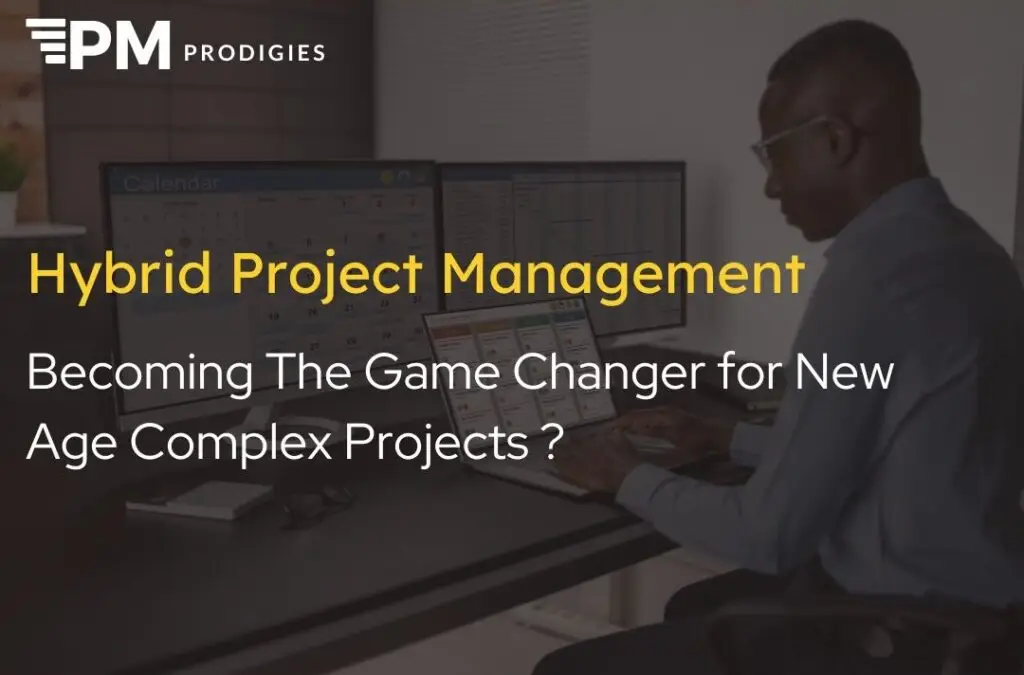
The project management landscape has undergone a significant transformation in recent years, driven by the integration of cutting-edge technologies like cloud computing, big data, and artificial intelligence (AI). These technologies are reshaping how projects are planned, executed, and monitored, enabling project managers to deliver more value with greater efficiency and accuracy. This article delves into the latest trends in cloud computing, big data, and AI, exploring their roles in project management and how they are setting the stage for a future where projects are managed smarter, faster, and more effectively.
Cloud Computing in Project Management
Cloud computing has become the backbone of modern project management, providing a flexible, scalable, and cost-effective infrastructure for managing projects of all sizes.
1. Enhanced Collaboration and Communication
Cloud-based tools allow project teams to collaborate in real time, regardless of their geographical location. Tools like Microsoft Teams, Slack, and Asana, hosted on the cloud, enable seamless communication, file sharing, and project tracking, fostering a collaborative environment essential for successful project delivery.
2. Scalability and Flexibility
One of the most significant advantages of cloud computing is its scalability. As project requirements evolve, cloud resources can be scaled up or down without significant investments in physical infrastructure. This flexibility ensures that projects can adapt to changing needs without delays or budget overruns.
3. Real-Time Data Access and Management
Cloud computing enables real-time access to project data, allowing stakeholders to make informed decisions quickly. This capability is crucial for monitoring project progress, identifying potential risks, and implementing corrective actions promptly.
4. Cost Efficiency
By leveraging cloud services, organizations can reduce the costs associated with maintaining on-premise servers and infrastructure. This cost efficiency allows more resources to be allocated to critical project activities, ultimately enhancing project outcomes.
5. Data Security and Compliance
Modern cloud platforms offer robust security features, ensuring that sensitive project data is protected from unauthorized access. Additionally, they help organizations comply with industry-specific regulations by providing secure data storage and processing capabilities.
Big Data in Project Management
Big data refers to the massive volumes of structured and unstructured data generated by various sources. In project management, big data analytics plays a pivotal role in decision-making, risk management, and performance optimization.
1. Predictive Analytics for Better Decision-Making
Big data analytics allows project managers to predict outcomes based on historical data. By analyzing patterns and trends, managers can make data-driven decisions that improve project planning, resource allocation, and risk management.
2. Enhanced Risk Management
Big data enables project managers to identify potential risks early in the project lifecycle. By analyzing data from past projects, managers can pinpoint common risk factors and implement strategies to mitigate them before they impact the project.
3. Resource Optimization
Big data analytics helps in optimizing resource allocation by analyzing resource utilization patterns. This ensures that resources are used efficiently, reducing waste and improving overall project performance.
4. Performance Monitoring and Reporting
With big data, project managers can monitor project performance in real-time, comparing it against benchmarks and key performance indicators (KPIs). This continuous monitoring enables timely adjustments to keep the project on track.
5. Customer Insights and Stakeholder Management
Big data provides valuable insights into customer behavior and preferences, enabling project managers to align project deliverables with stakeholder expectations. This ensures higher customer satisfaction and successful project outcomes.
Artificial Intelligence (AI) in Project Management
AI is revolutionizing project management by automating routine tasks, enhancing decision-making, and providing predictive insights that were previously unattainable.
1. Automation of Routine Tasks
AI-powered tools can automate repetitive tasks such as scheduling, reporting, and task assignment. This frees up project managers to focus on more strategic activities, such as stakeholder management and risk mitigation.
2. Intelligent Decision-Making
AI algorithms analyze vast amounts of data to provide project managers with actionable insights. These insights enable managers to make informed decisions quickly, improving project outcomes.
3. Predictive Analytics and Risk Assessment
AI enhances predictive analytics by identifying potential risks and forecasting project outcomes with a high degree of accuracy. This allows project managers to take proactive measures to mitigate risks and ensure project success.
4. Enhanced Resource Management
AI optimizes resource management by analyzing data on resource availability, skill sets, and project requirements. This ensures that the right resources are assigned to the right tasks, improving efficiency and productivity.
5. AI-Driven Project Management Tools
Tools like Wrike, Trello, and ClickUp are integrating AI features to enhance project management capabilities. These tools use AI to predict project timelines, optimize workflows, and provide real-time insights into project performance.
Integrating Cloud Computing, Big Data, and AI in Project Management
The true power of these technologies lies in their integration. When combined, cloud computing, big data, and AI create a synergistic effect that transforms project management.
1. Seamless Data Flow and Collaboration
Cloud computing enables seamless data flow, while big data analytics processes this data to generate actionable insights. AI then uses these insights to automate decision-making and optimize project performance.
2. Real-Time Analytics and Decision-Making
With the cloud providing real-time data access, big data analytics and AI can work together to provide instant insights into project performance. This real-time feedback loop ensures that projects stay on track and adapt to changes swiftly.
3. Enhanced Project Outcomes
The integration of these technologies leads to enhanced project outcomes by improving efficiency, reducing risks, and ensuring that projects are delivered on time and within budget.
Challenges and Considerations
While the benefits of cloud computing, big data, and AI in project management are substantial, there are challenges that organizations must address to fully leverage these technologies.
1. Data Security and Privacy
As more data is stored and processed in the cloud, organizations must ensure that their data security measures are robust enough to protect sensitive information from breaches and unauthorized access.
2. Integration Complexity
Integrating cloud computing, big data, and AI requires a well-thought-out strategy and the right tools. Organizations must invest in the necessary infrastructure and training to ensure successful implementation.
3. Change Management
Adopting new technologies requires a cultural shift within the organization. Project managers must lead the change by educating team members on the benefits of these technologies and how to use them effectively.
4. Cost Management
While these technologies offer cost efficiencies, the initial investment can be substantial. Organizations must carefully manage the costs associated with implementation and maintenance to ensure a positive return on investment.
Conclusion: The Future of Project Management
The integration of cloud computing, big data, and AI is not just a trend but a fundamental shift in how projects are managed. As these technologies continue to evolve, they will enable project managers to deliver projects with unprecedented accuracy, efficiency, and value. The future of project management lies in the seamless integration of these technologies, leading to smarter, faster, and more successful project delivery.


